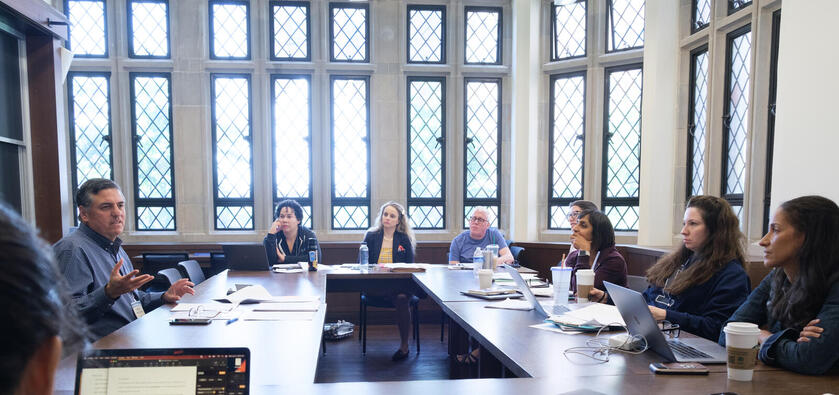Yale Writers' Workshop 2024 Course Descriptions
On-Campus Workshop June 1 - June 8
In the on-campus Workshop you will participate in workshops, lectures, individual conferences and readings intended to broaden your understanding of the craft of writing. This is an immersive experience on Yale’s lovely New Haven campus. The writing conversations extend from the classroom to the dining hall. Visiting faculty will deliver craft talks to all workshop participants. Because we write to be read, we will have panels of agents and editors to provide insight into the publishing process and the realities of the writer’s life. Writers are invited to participate in open mics and a formal reading of their work. During the session, faculty will hold half-hour, one-to-one meetings with participants. Plus, participate in an experiential writing adventure.
Virtual Workshop June 9 - June 15
The one-week Workshop is intended for writers concentrating on a specific genre. Over seven days, you will meet in a seminar with fellow writers, led by a faculty member established in the field. The seminar will include exercises and readings as well as discussion of student work with eye toward revision. During the week, faculty will hold half-hour, one-to-one meetings with participants. Plus, the one-week workshop includes an agent panel and meetings for writers with completed manuscripts! You are invited to participate in open mics and a formal reading of their work.
Workshops 2023
-
Children and Young Adult
-
Short Story/Novel Excerpt
-
First Ten Pages
-
Personal Essay/Memoir
-
Write Here, Write Now
Alumni Workshop: Work-in-Progress Intensive June 1- June 15
Offered for YWW alumni only, this two-week workshop allows alumni to work with an instructor on a work in progress.

